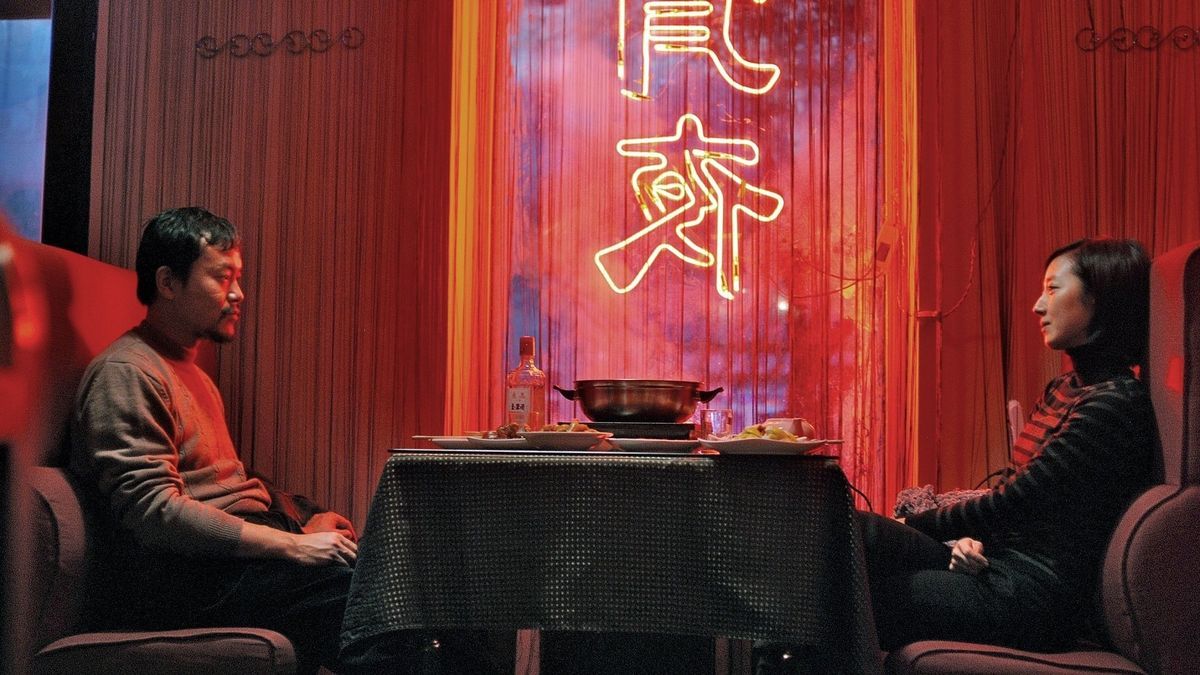Tricky Brains Capsule Reviews

Diao Yinan:
Black Coal, Thin Ice (2014) — June 7, 2014
Any movie with sequences seemingly inspired by Kurosawa’s The Idiot, Campion’s In the Cut, and Denis’s Beau travail surely has something going for it.
Vivian Qu:
Angels Wear White (2017) — June 13, 2018
Vivian Qu’s Angels Wear White is, like her 2014 debut Trap Street, an unsparing indictment of the power dynamics of contemporary China. More harrowing though, is that while Trap Street’s systems of control were all circumspect, a surveillance state panoptically controlling the lives of young men and women without their knowledge, the system in Angels Wear White is all too apparent and obvious in its functions, yet no one has the will nor the ability to counteract it.
A young girl, maybe 15 years old, works at a hotel located near a pleasant but underpopulated beach. One night, she checks-in an older man who gets a room for himself and for two younger girls. The girls are loud and silly, they order beer and she brings it to them. Later, she watches the man push his way into the room and records the security camera footage of the event on her phone. When, a couple of days later, the girls accuse the man, a prominent figure in local government, of rape, the clerk withholds her evidence. The central mystery of the film is why she does so, and in exploring her reasons, without ever really explicitly stating them or the girl’s backstory (though we can infer quite a bit) Qu reveals the corrosive effects of corruption and fear on a society, the devastating domino effects of trauma on an entire community.
Qu sticks doggedly to the girls’ point of view, both the hotel clerk and one of the 12 year old victims, their lives inextricably tied though they never actually meet. Uniting it all is the beach, site of freedom and play and a refuge for both girls, but also of lawlessness and late-night rendezvous, dominated by a giant statue of Marilyn Monroe in her famous Seven-Year Itch pose, a conflation of innocence and sex masking a tortured psyche.
Xin Yukun:
The Coffin in the Mountain (2014) — May 22, 2015
This first film from Chinese writer-director Xin Yukun presents an impressive and quite funny narrative tangle that builds slowly through three interconnected stories, sparked by a death in the woods. A young couple on the run, an older couple cheating on their spouses, and the village mayor all think the corpse is their responsibility and act accordingly to cover it up or avoid being discovered, with cosmically winky results.
Before settling down in the later sections, the opening third is shot in what has seemingly become the new international style. In recent years it seems we’ve moved away from the “Asian Minimalist” style of long shots and long takes to a more flowing style. Handheld cameras wandering freely around a space, usually too close to the actors. I’m hereby dubbing it “Dardennean Motion”. The first section effectively uses this style to emphasize the desperation and claustrophobia of the young lovers trapped together and on the run, only to open up as the film goes on as Xin’s whimsical blackness grows to encompass a whole universe.
Evan Yang:
Mambo Girl (1957) – March 20, 2017
On first glance, a frothy frivolity, a 50s teen rom-com musical with Grace Chang the Debbie Reynolds or Annette Funicello at its center, the bubbly singing, dancing, wholesome good girl everyone loves. But the plot takes a turn: it turns out Grace is adopted, something she doesn't learn until the middle of her 20th birthday party, when a jealous rival (her short hair and air of menace recall Mercedes McCambridge) spitefully lets the secret slip. Grace, the unstable foundation of her world revealed, runs away, at first in embarrassment and pity, and then (after a rooftop vision of a ghost woman singing a mournful song for her lost child) determined to find her real mother. She finds her (after searching every night club in town: an excuse for some more musical numbers, including one primal dance as physical as any Chang Cheh brawl), but the woman denies it, and Grace (through song, naturally, but by listening to a recorded version of herself singing) comes to realize how happy she really is. Her ebullient smile returns, but rather than the sublime emptiness of Debbie Reynolds (circa Dobie Gillis or I Love Melvin), it's now the weary and wary joy of Hara Setsuko. A generation comes of age, realizes the tragedies of the world that preceded them, that brought them to life, and that surrounds them still, yet carries on dancing. Because what else is there?
